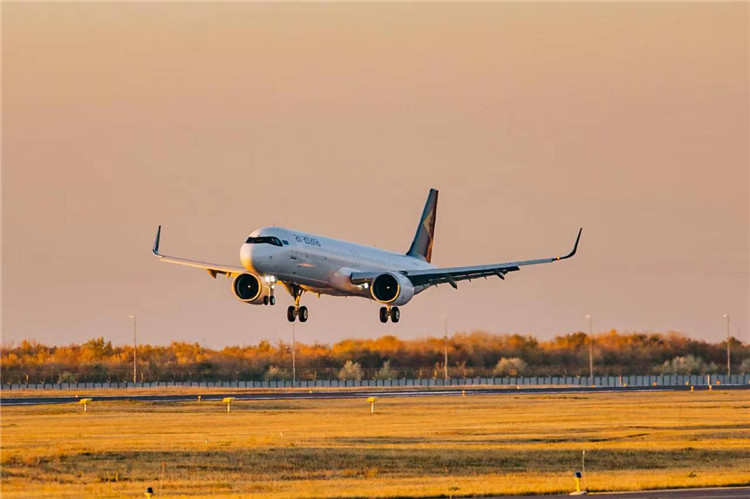
Air Astana, Central Asia’s leading carrier, is celebrating 21 years of operations today. Since launching its first service between Almaty and Astana in 2002, the airline has experienced remarkable growth and has earned a reputation for its award-winning customer service, operational efficiency, high safety standards and consistent profitability without shareholders or government funding. In 2022, the airline achieved its best-ever year, with the group reporting a profit after tax of $78.4 million, on revenue of $1.03 billion. In 2022, Air Astana and its LCC jointly carried 7.35 million passengers. With a fleet of 43 modern Airbus, Boeing and Embraer aircraft, the group currently serves over 90 destinations in Kazakhstan, Central Asia, Georgia, Azerbaijan, China, Germany, Greece, India, Korea, Montenegro, the Netherlands, Thailand, Turkey, the UAE and the United Kingdom.
Air Astana resumed its Beijing-Almaty and Beijing-Astana direct flights in November 2022 and March 2023, as the international aviation market gradually recovers in China, and now operates six and one weekly flights respectively. These routes are operated by the company's brand new Airbus A321 Long Range fleet with greatly enhanced cabin comforts and facilities for passengers. Transiting via Almaty or Astana, passengers can travel with Air Astana to further destinations, such as Tashkent, Dushanbe, Bishkek, Tbilisi, Baku, Istanbul, London, Dubai and use Air Astana’s Stopover Holiday program.
The airline has always placed a strong emphasis on innovation as a key component of its development strategy, and has achieved numerous notable initiatives over the years. One such successful initiative began in 2010 with the “Extended Home Market” program, which drew traffic into Almaty and Astana from surrounding countries in Central Asia and the Caucasus region. In addition, the low-cost division, FlyArystan, which was launched in May 2019, has since carried over 3.2 million passengers to domestic and international destinations. Other notable achievements over the years include the launch of the Ab-initio pilot training scheme in 2008, which has since delivered 300 qualified pilots to the airline; the introduction of the Nomad frequent flyer scheme in 2007; the opening of a new Engineering Centre in Astana with capabilities up to C-check in 2018; and most recently, the development of a Lifestyle destination network that has generated substantial new business to overcome the challenges presented by the global health crisis and other market difficulties.
Since 2010, Air Astana has consistently won service excellence awards from Skytrax, APEX and Tripadvisor, together with a Global Market Leadership Award from Air Transport World in 2015.
“Air Astana’s 21st Anniversary gives true cause for celebration, with the successful strategies and innovative solutions of the past now providing a firm foundation for an exciting new era of sustainable growth in the future,” said Peter Foster, president and CEO of Air Astana. “My sincere thanks go out to every one of our 6,000 dedicated staff and the millions of customers who have enabled Air Astana to overcome every challenge in recent years to reach this remarkable achievement in 2023”.
Air Astana is looking towards the future and planning significant fleet development. The Group has already received eight new aircraft since the start of 2022, with seven more scheduled for delivery by the end of 2023. The airline has also secured contracts for an additional 13 aircraft to be delivered between 2024 and 2026. In addition to expanding the Airbus A320neo / A321LR fleet, in service, the airline will take delivery of the first of three Boeing 787s beginning from 2025. These new widebody aircraft will allow the airline to extend its services to long-range destinations, including North America. Immediate plans include the launch of new services to Tel Aviv in Israel and Jeddah in Saudi Arabia later this year, as well as an increase in the frequency of current routes. Passenger traffic is expected to grow to 8.5 million by 2023, in alignment with these fleet and network development initiatives.